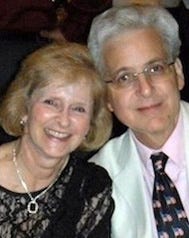On January 3, 2012, John David Lewis, my good friend and contributing editor of this journal, died after a relentless battle with cancer. The premature death of any good man is tragic, but John was not just a good man; he was the kind of man good men look up to. John was an ideal man, and his early death comes as close as anything can to being a metaphysical flaw in the universe.
I want to focus, however, not on John’s death but on his life, which was a shining example of what is possible to man when he is fully rational, fully focused, fully virtuous.
When John was in his 40s, he decided to change his career from businessman to professional intellectual. He proceeded to earn a PhD in classics from the University of Cambridge, in England, and to achieve masterful knowledge of the history of ancient Greece and of military history in general. He also integrated his ever-expanding historical knowledge with his ever-expanding knowledge of rational philosophy, thus achieving what few historians do: an understanding not only of what happened, but also of why it happened. (His book Nothing Less than Victory: Decisive Wars and the Lessons of History [Princeton University Press, 2010] and his essays for The Objective Standard on the causes of war and the requirements of victory are unique in their breadth, depth, and objectivity on these subjects.)
After earning his doctorate and spending a few tumultuous years teaching at a lesser university in Ohio (where his radical ideas were not welcome), John achieved the position of both visiting associate professor in the philosophy, politics, and economics program at Duke University, and adjunct associate professor of business at the University of North Carolina, Chapel Hill. John loved the title of the department at Duke because, as he pointed out, it acknowledged the fact that philosophy, politics, and economics are intimately related—and that philosophy is the fundamental field.
John told me that his primary message to his students was that their minds are efficacious; that they can acquire knowledge of the world, including historical and moral truth; that they can achieve their dreams if they are willing to think and work; and that their lives are theirs to live and enjoy. How would you like to have had him as a professor?
In addition to writing books and essays and teaching at these top universities, John spoke at Objectivist conferences and Tea Party events, where his courses and lectures were always among the most popular, insightful, and inspiring. He also spoke on the morality of free markets in medicine and the need to get the government out of the way so that innovators can innovate. I suspect that, had markets been free during his lifetime, John would still be alive.
John played the drums, loved jazz, and revered precision and clarity in music, as he did in thought and communication. And he gave me, and all of his friends, the joy of great conversation, great camaraderie, and the most valuable thing anyone can give another: an example of how to live passionately.
While I was visiting John over the holidays, just ten days before he died, he said to me that his death was of no concern to him. He did not mean that he didn’t care whether he died—on the contrary, he wanted desperately to live. What he meant was that the only thing one should concern oneself with is living and loving life. That is what John did. He lived life fully until he could live no more.
I embrace and will continue to embrace his example. I will concern myself only with living and loving life. But I loved John immensely, and I will miss him as much as I loved him. He is my hero.



